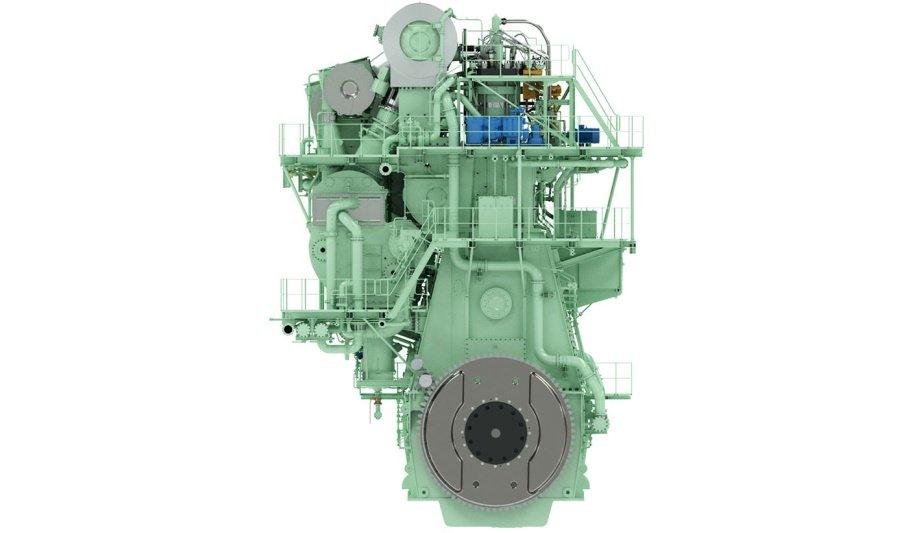A.P. Moller – Maersk, the Danish integrated logistics company, has signed a contract with MAN PrimeServ – MAN Energy Solutions’ after-sales division – for the retrofit of the main engines aboard 11 container vessels equipped with MAN B&W 8G95ME-C9.5 prime movers. These will be retrofitted to dual-fuel MAN B&W 8G95ME-LGIM10.5 types capable of operation on fuel-oil/methanol.
The first vessel will be retrofitted in mid-2024. PrimeServ will provide a solutions package comprising engineering, parts, project management, onsite technical assistance at yard, sea-trial assistance and recertification service during the work.
Switching to low-carbon fuel
Switching to low-carbon fuel is the most effective way to decarbonise the existing maritime fleet"
Michael Petersen, the Senior Vice President – Head of PrimeServ Denmark, said: “Switching to low-carbon fuel is the most effective way to decarbonise the existing maritime fleet. In this respect, the container segment has led the maritime energy transition over the past two years with a large proportion of newbuildings opting for dual-fuel engines.”
He adds, “Similarly, retrofits to dual-fuel also represent an excellent way to decarbonise while enabling shipowners to maintain their assets’ value and avoid the unnecessary building of additional tonnage.”
Solution partner for customers to attain decarbonisation goals
Klaus Rasmussen, the Head of Projects and PVU Sales, MAN PrimeServ, said: “Part of our strategy is to act as a solution partner for our customers and help them attain their decarbonisation goals. In that context, these will be the first-ever methanol retrofits performed on two-stroke engines and will enable emissions reduction when operating on green methanol.”
He adds, “Retrofitting an MAN B&W engine to dual-fuel running is straightforward as our standard, electronically-controlled ME-C diesel engines are constructed as ‘dual-fuel ready’ and therefore readily retrofittable.”
Maersk signs retrofit contract with MAN PrimeServ
The retrofit contract closely follows the recent announcement of the completion of the FAT (Factory Acceptance Test) of the first engine in Maersk’s ‘Equinox’ class newbuildings that are also equipped with MAN B&W 8G95ME-LGIM10.5 dual-fuel methanol engines.
About the MAN B&W ME-LGIM engine
MAN Energy Solutions developed the ME-LGIM dual-fuel engine for operation on methanol
MAN Energy Solutions developed the ME-LGIM dual-fuel engine for operation on methanol, as well as conventional fuel.
The engine is based on the company’s proven ME-series, with its approximately 8,500 engines in service, and works according to the Diesel principle.
When operating on green methanol, the engine offers carbon-neutral propulsion for large merchant-marine vessels. Currently, more than 100 ME-LGIM engines are on order or in service, more than 50 of which are G95ME-C10.5-LGIM variants.
ME-LGIM engines offer great reliability and high fuel-efficiency
Methanol carriers have already operated at sea for many years using the engine, and, as such, the ME-LGIM has a proven track record offering great reliability and high fuel-efficiency.












